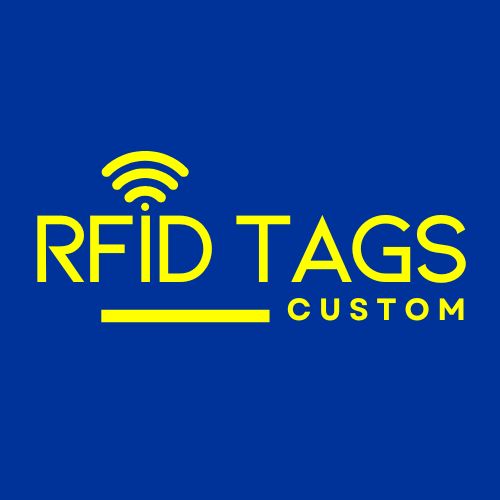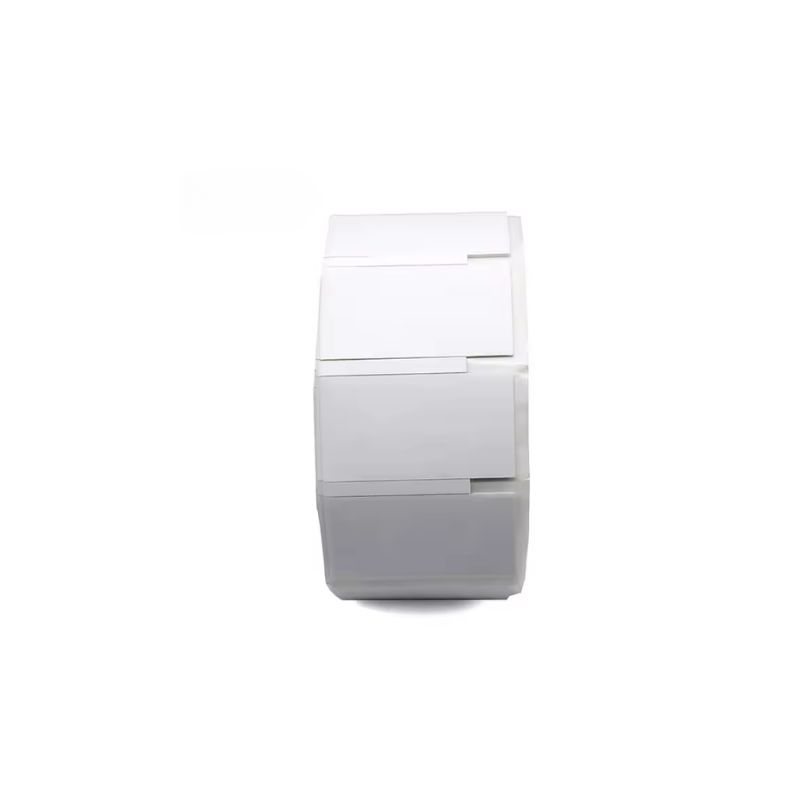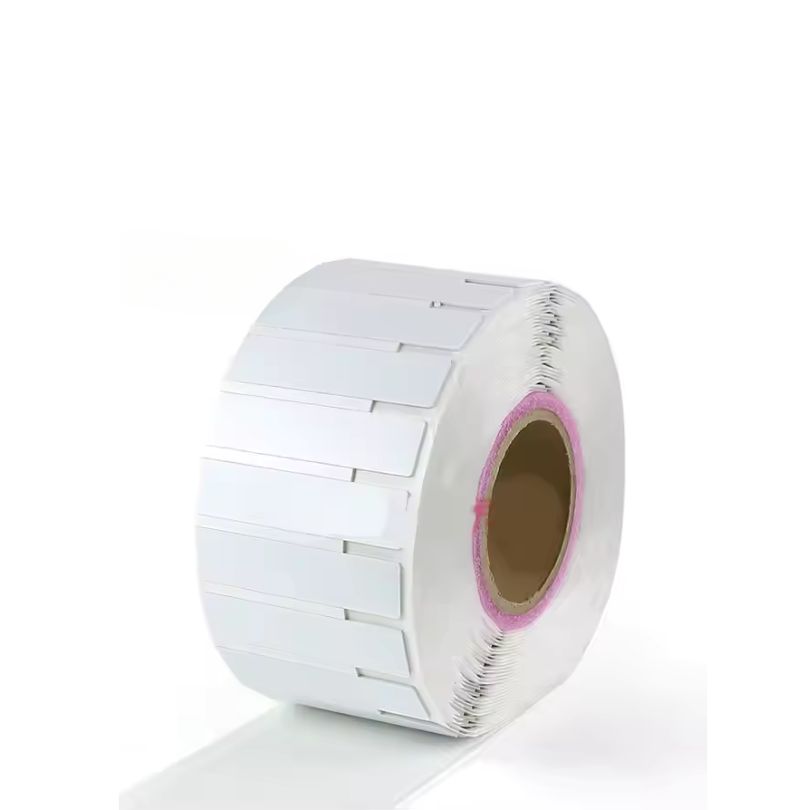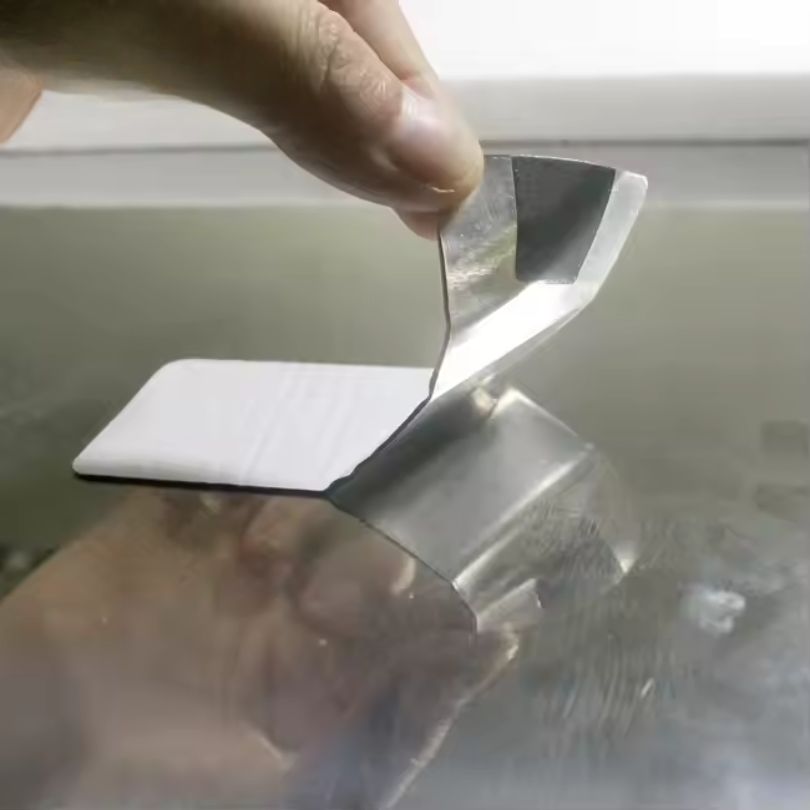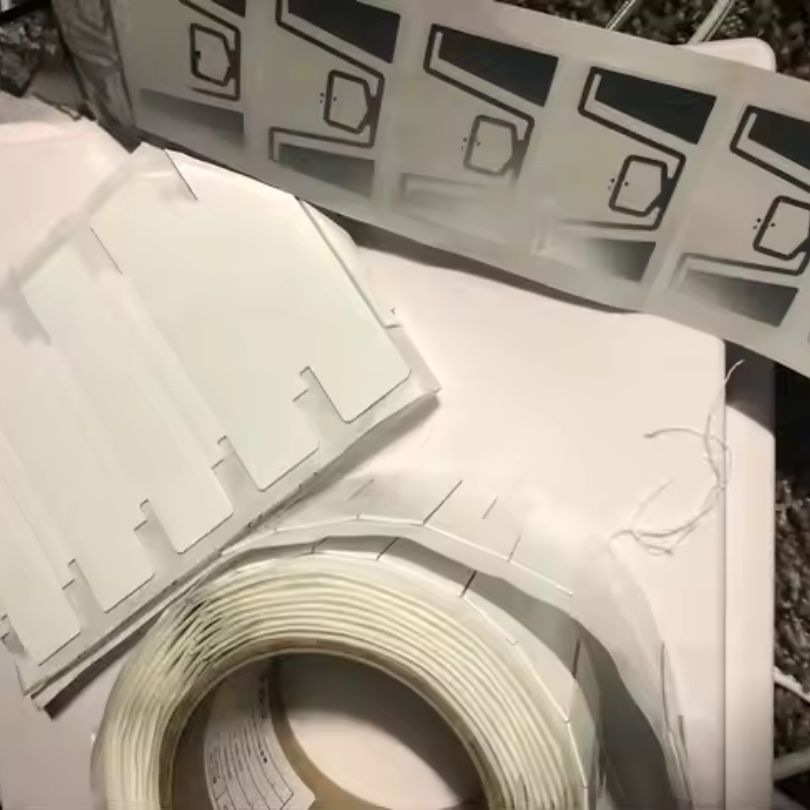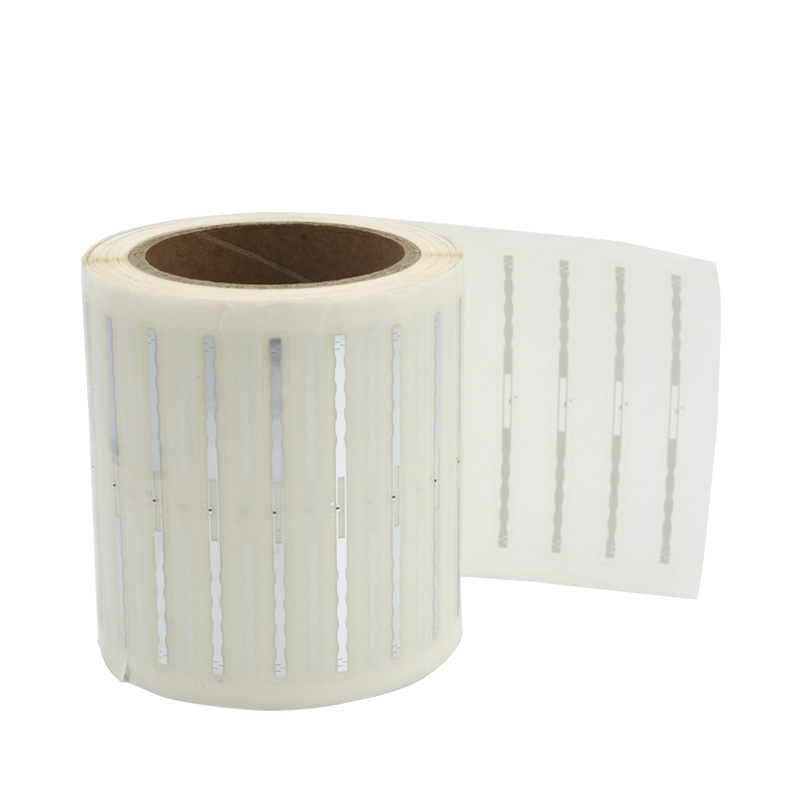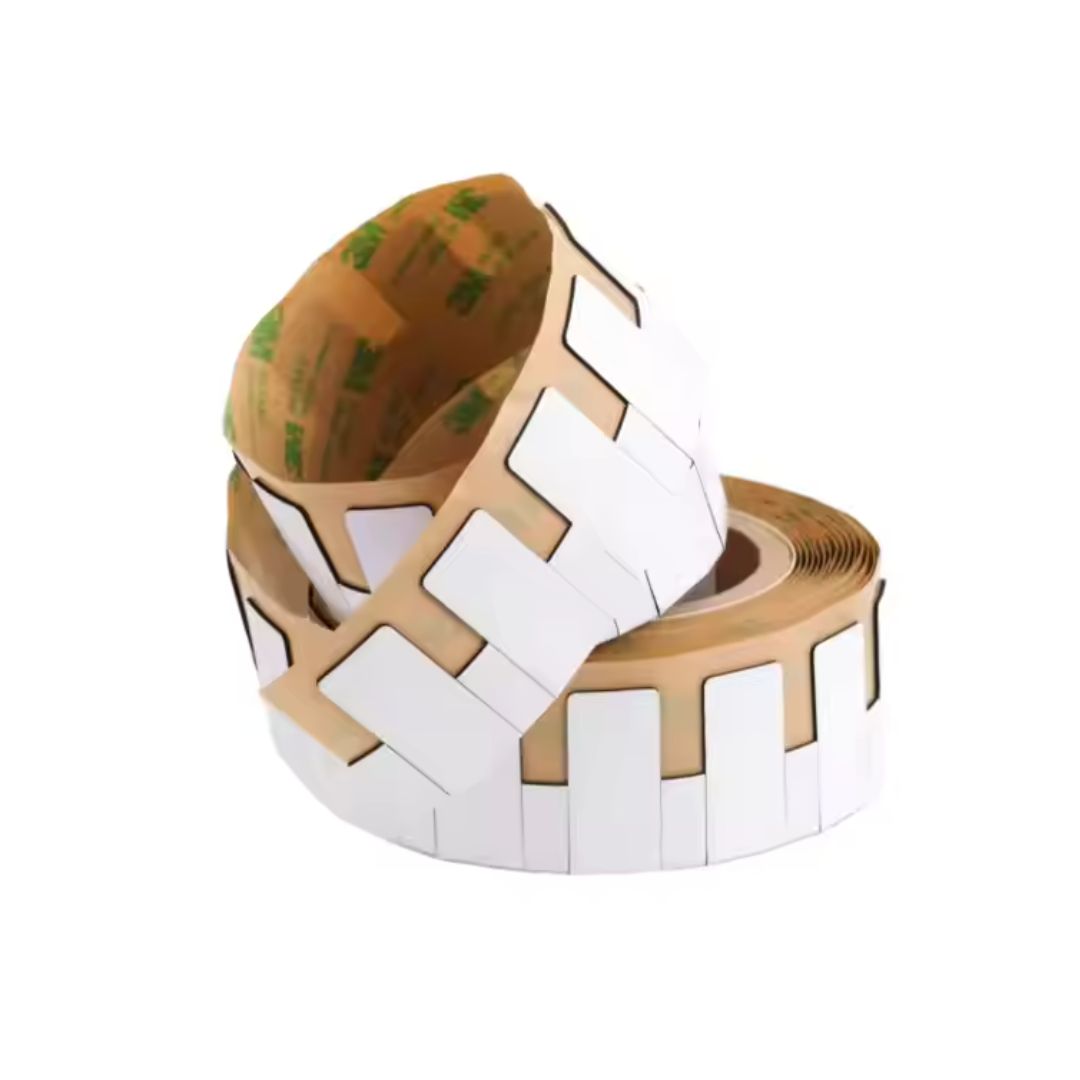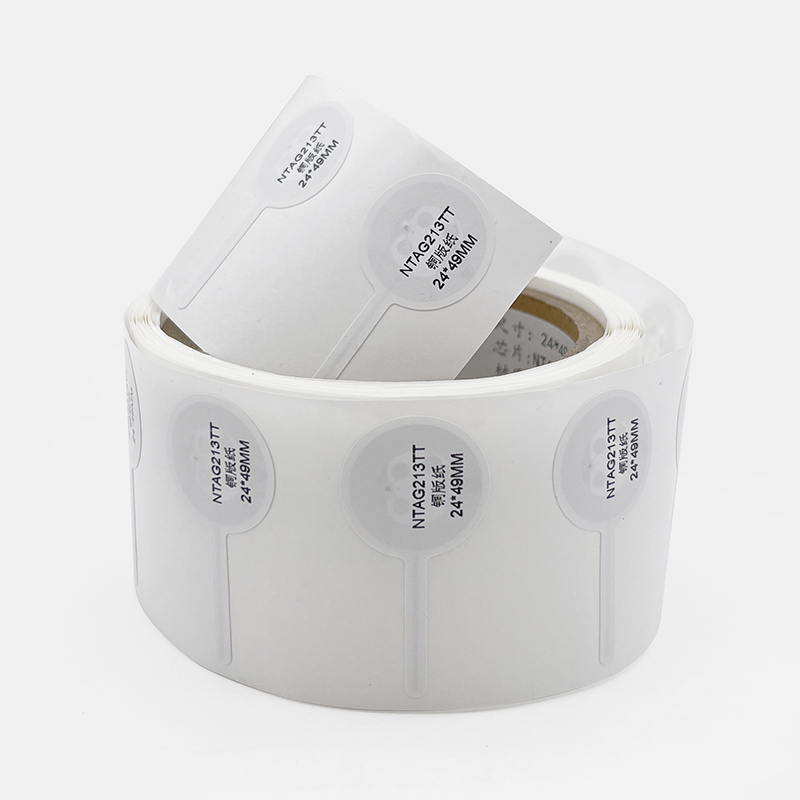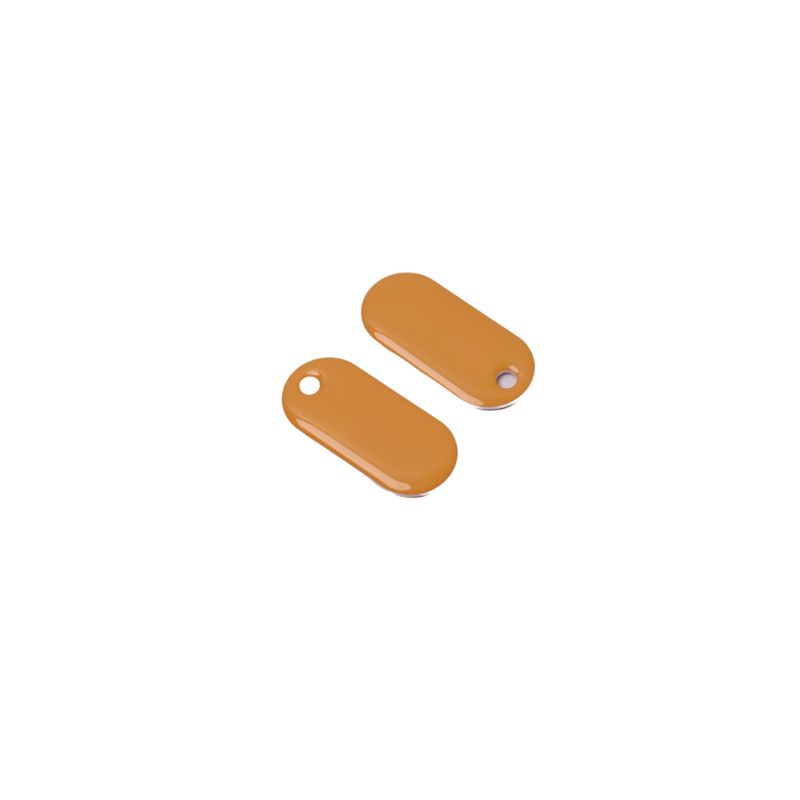
Flexible and Printable RFID Tags for Metal Surfaces
Flexible RFID Tags for Metal Surfaces – Durable, Printable & Anti-Metal Smart Tagging
RFID tags for metal surfaces are specifically engineered to solve one of RFID’s biggest challenges—interference from metal. Our high-performance flexible RFID tag technology ensures consistent read reliability even when applied directly on metal surfaces like laptops, tools, machinery, or metal containers.
Designed for curved and irregular metallic items, these on metal RFID tags provide flexibility, printability, and excellent signal performance—all in a single, adhesive-backed smart label. Whether you’re managing assets in a data center, factory, or warehouse, our RFID tags for metal surfaces simplify tagging, improve tracking accuracy, and optimize operations.
Key Features of RFID Tags for Metal Surfaces
Designed for Direct Application on Metal Surfaces
These RFID tags feature ferrite shielding that neutralizes interference, enabling accurate read/write even on metal.Flexible & Printable
The flexible RFID tag construction allows it to wrap around pipes, tools, or cylindrical assets. Printable via thermal transfer printers.Durable Construction
Resistant to abrasion, chemicals, and temperature extremes (typically from -20°C to +85°C), perfect for industrial settings.Multiple Frequencies Available
Options for UHF (860–960 MHz) and HF (13.56 MHz) for diverse use cases and hardware compatibility.Strong Adhesive Backing
Peel-and-stick design for fast application to flat or curved metal surfaces.
Real Use Case: IT Asset Tracking on Laptops & Servers
A global data center deployed over 12,000 RFID tags for metal surfaces to track laptops, servers, and network gear. These on metal RFID tags were applied directly to metal casings:
- Inventory audits were completed 3x faster
- Equipment loss reduced by 28%
- Tags were scanned reliably despite curved or anodized aluminum surfaces
The flexibility and printability of the tags made deployment efficient, even in tight or irregular locations.
Technical Specifications
| Feature | Specification |
| Frequency Options | UHF (860–960 MHz), HF (13.56 MHz) |
| Compatible Chips | Impinj Monza R6P, NXP NTAG213 |
| Read Range | UHF: Up to 5 meters; HF: Up to 10 cm (varies) |
| Operating Temperature | -20°C to +85°C |
| Material | Polyimide or polyester + ferrite shielding |
| Adhesive | High-strength industrial adhesive |
| Surface Compatibility | Curved & flat metal surfaces |
| Printing | Thermal transfer printable |
| Data Retention | Up to 10+ years |
| Standards | ISO 18000-6C, ISO 14443A, RoHS, ISO 9001 |
Application Scenarios
Flexible RFID tags for metal surfaces are trusted across many industries:
IT Asset Management
Apply directly to servers, laptops, and hard drives.Industrial Equipment Tracking
Monitor tools, machines, or components on production floors.Warehouse Inventory
Tag bins, shelves, and containers—especially those made of metal.Automotive & Aerospace
Track high-value parts during assembly and logistics.Healthcare
Monitor surgical instruments and medical devices securely.
Upgrade to Smart Metal Asset Tagging
Looking for an RFID solution that works flawlessly on metal?
Contact us for free samples or a custom quote
Ask about thermal printable and custom flexible RFID tags
Low MOQs & fast production from our RFID manufacturing facility
Let’s build your smart metal asset tracking system—flexible, printable, and high-performing.
Why Choose Our RFID Tags for Metal Surfaces?
- Direct from our factory = better pricing and customization
- Proven quality: ISO, RoHS, and industrial testing certified
- Custom chip options, sizes, logos, and read distances
- Fast lead times and responsive technical support
- 10+ years of RFID industry experience
FAQ
Can these RFID tags be applied directly to metal surfaces?
Yes, our RFID tags for metal surfaces use ferrite shielding to block interference and ensure reliable scanning directly on metal.
Are they suitable for curved or uneven surfaces?
Absolutely. These are flexible RFID tags, designed to conform to irregular shapes like cylinders, tools, or pipes.
Can I print barcodes or logos on them?
Yes. Our printable RFID tags support thermal transfer printing for barcodes, logos, or custom text.
Do they support HF and UHF protocols?
Yes. We offer HF (13.56 MHz) for short-range, and UHF (860–960 MHz) for long-range applications.
What sizes and shapes are available?
We offer custom shapes and sizes based on your application. Contact us for options and free samples.
Get Your Custom RFID Tags
As a leading custom RFID tag manufacturer, we craft solutions based on the unique needs of your operation. We offer a wide range of customization options, including material, size, frequency, encoding, and read distance, ensuring each RFID Tag is perfectly customized to your requirements. No matter what application you use RFID tags for, we can provide rugged, reliable RFID tags that meet the highest quality and durability standards. Here are the main ways we customize RFID tags to fit your needs.

Material Selection
Material is key for customizing RFID tags. Plastic works in harsh conditions, while softer materials suit delicate spaces. Different materials also affect signal performance. Pick what fits your use case to ensure your tags last and work reliably.

Customized Size
Size shapes usability. Small tags fit tight spaces or tiny items, while larger tags are easily read. In crowded areas, sleek tags prevent clashes. Align shape and dimension with your goods for visibility, convenience, and performance.

Frequency Requirements
Choose LF, HF, or UHF based on read range, speed, and interference. LF and HF resist metals and liquids but have shorter ranges. UHF offers an extended range yet may face signal blocks. Match frequency to your environment for reliable performance.

Reading Distance
Define the distance at which you have to read the tag. Short distances work for retail checkouts, while warehouses may need meters of coverage. Antenna design, reader settings, and power outputs affect range.Adjust these factors to capture data accurately at the distance you need.

Encode
Plan how data is stored on each tag. Some only hold an ID, while others contain detailed info. Decide if you need a simple EPC or added user memory. Ensure your chosen format works with existing software. Proper encoding streamlines processes and slashes errors.

Application Environment
Consider real-world conditions. Temperature swings, humidity, and chemicals can degrade tags. For outdoor use, opt for UV-resistant casings. In healthcare or food settings, ensure compliance with safety rules. Matching your tags to the environment maximizes their lifespan.
Related Products
Customize any RFID tags from our factory to meet your requirements.
